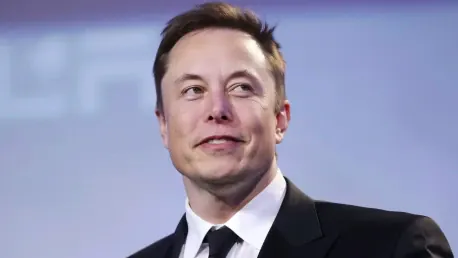The political landscape is abuzz with a radical new proposal from former President Donald Trump, who is eyeing a possible return to the Oval Office in 2024. In a move that has sparked significant interest and controversy, Trump has put forth the intriguing idea of appointing tech billionaire Elon Musk to lead a new commission aimed at eliminating government waste and streamlining regulatory processes. This ambitious plan promises substantial transformations in how government operates but brings with it potential conflicts of interest that have sparked a heated debate among political analysts and ethics experts alike.
Trump’s Vision for Streamlining Government
Trump and his advisors are diligently crafting a strategy to tackle inefficiencies in government operations. At the heart of this strategy is the establishment of a commission dedicated to identifying and cutting wasteful programs and excessive regulations. Central to Trump’s vision for a leaner, more effective government, this commission aims to bring a more business-like approach to public governance should he secure another term in office.
Elon Musk, known for his groundbreaking ventures in space exploration, electric vehicles, and more recently for his forays into the social media landscape, has emerged as a top candidate to lead this initiative. Trump believes that Musk’s unparalleled business acumen and innovative mindset can significantly contribute to reducing bureaucratic bloat, injecting a fresh, efficient approach to governmental operations. The idea may still be in its early stages, but Trump’s camp remains optimistic about the potential impact of having such a transformative figure at the helm. They anticipate that Musk’s unorthodox and results-driven style could lead to substantial long-term savings for the government, aligning closely with Trump’s overarching goal of achieving greater efficiency.
Elon Musk’s Enthusiasm and Vision
Elon Musk has often vocalized his desire to bring his efficiency-driven approach to the public sector, making frequent use of social media platforms to share his ideas on government reform. On numerous occasions, he has even made light-hearted jokes about heading a hypothetical “Department of Government Efficiency,” affectionately dubbed DOGE, a clever nod to the meme-inspired cryptocurrency Dogecoin. However, Musk’s interest isn’t purely rhetorical.
He firmly believes that many governmental processes are outdated and could greatly benefit from the application of modern technology and business principles. Musk’s experience in managing large, complex organizations such as SpaceX and Tesla could provide him with the unique insights needed to overhaul cumbersome bureaucratic structures. Although some may dismiss his enthusiasm as mere banter, those close to Musk confirm his genuine interest in reforming government operations. He envisions a future where government services are delivered with the same efficiency that he has instilled in his corporate ventures, proving that his interest goes beyond idle talk.
Ethical Concerns and Potential Conflicts of Interest
The prospect of Elon Musk leading such a transformative commission has naturally raised some ethical eyebrows. As the head of several companies with substantial government contracts, Musk’s dual role could pose significant conflicts of interest. Experts worry that he might leverage his governmental influence to dismantle regulations that adversely affect his businesses, potentially prioritizing corporate gains over public good. Ethics watchdogs are closely monitoring the developments, arguing that while Musk’s expertise is invaluable, his vested interests in sectors like aerospace and automotive could lead to biased decision-making.
The potential for Musk to compromise public policy in favor of his business interests is a pressing concern. However, Trump’s team remains largely dismissive of these ethical qualms, expressing confidence that a clearly defined consultative role, distinct from formal policymaking, would mitigate the risks of undue influence. This nuanced approach aims to leverage Musk’s insights while safeguarding against possible conflicts of interest, though the success of such a separation remains uncertain to many observers.
Musk’s Political Shift and Strategic Involvement
The political scene is buzzing with an audacious new proposal from former President Donald Trump, who seems to be gearing up for a potential 2024 presidential run. This time, Trump has suggested an idea that’s both intriguing and contentious: appointing tech mogul Elon Musk to spearhead a new commission focused on eradicating government waste and streamlining regulatory processes. The ambitious plan has the potential to bring sweeping changes to how the government functions. However, it also raises several ethical concerns and potential conflicts of interest. The suggestion has ignited a fiery debate among political analysts and ethics experts, with opinions sharply divided on whether such a move would lead to positive reform or increased ethical dilemmas. Many view Musk’s involvement as a double-edged sword—his tech-savvy approach could innovate government processes, but his vast business interests might pose significant conflicts. As the conversation continues, the nation watches closely, eager to see if Trump’s proposition will gain traction or face overwhelming opposition.









